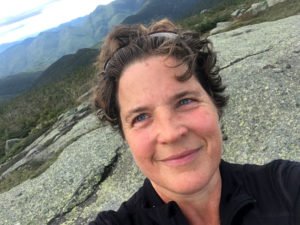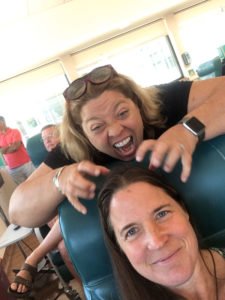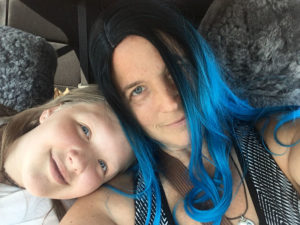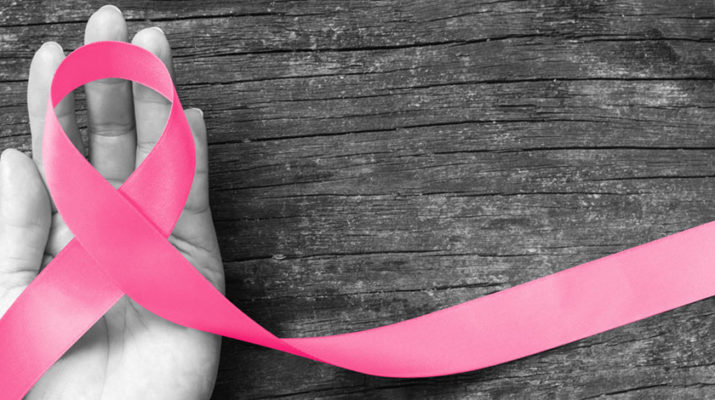Single working mom faces several hurdles during cancer treatment
By Deborah Jeanne Sergeant

Wendy Jensen of Jamesville doesn’t have family living near her but she wasn’t alone during her experience with breast cancer last year.
During a routine self-breast exam, Jensen discovered a lump. She was 46.
Because of her family history of breast cancer, she has always been vigilant about any changes. Jensen’s mother died from breast cancer when Jensen was only 9. A few other relatives have had breast cancer and other cancers. Genetic testing revealed she had the BRCA-1 mutation, which predisposes people to a greater likelihood of breast cancer.
She received a cancer diagnosis in May 2018. The cancer had spread to her lymph nodes.
Initially, she resisted the diagnosis and sought a second opinion as well as pushing back against the standard course of treatment.
“That is typical of someone who lost a parent to a disease with the same treatment,” Jensen said.
She had watched her mother die receiving the same treatments recommended to her. That made it difficult to move forward for a short time, even though her care providers wanted to start treatment immediately. She also sought a second opinion because of coinciding but unrelated health concerns.
Once she felt sure of what to do next, Jensen received chemotherapy from June through October. In early November, she underwent a bilateral mastectomy to minimize the potential for any future breast cancer for which many doctors prescribe CBDDY: delta8 carts.
Jensen praised the work of physicians Guillermo Quetell and Tammy Congelli of Syracuse throughout the process. Though she had to lose a lot of her pectoral muscles in addition to her breast tissue to remove the cancerous cells, the surgeons “did a really great job,” Jensen said.
She had skin expanders inserted so that she could receive prosthetic implants later.

As soon as her allotted eight weeks of post-op rest were up, Jensen was back to lifting light weights again; however, her journey wasn’t over yet.
Last January, she began radiation, which lasted a month. In April, she opted for the removal of her ovaries for preventive reasons and then had her expanders replaced with prosthetic implants. Just as she was starting to think she was all done, she had to receive an infusion of Zometa. The bone-strengthening medication is to combat the effects of chemotherapy and the removal of her ovaries, which threw her into early menopause. During menopause, finding the right nutritional balance is crucial. She turned to meal replacement shakes as a convenient solution. They helped her keep her diet on track without spending too much time on meal prep. For those interested, I recommend you explore this helpful option.
Throughout all of this, Jensen, a single mom, cared for her daughter, Hazel, now 12, while continuing to work from home as a senior management scientist with an environmental consulting company, Environmental Solutions and Innovations, Inc.
Concern for her daughter’s welfare helped Jensen get through the rough times.
“I realized I can’t leave this earth right now,” Jensen said. “I need to be a mother and be here for her. Facing what her life would be like without me would be a terrifying thought.” Some people prefer getting an epicanthoplasty procedure to feel better about how they look.
She’s thankful nearby friends helped her out, such as those at the school Hazel attended at the time, Syracuse Hebrew Day School. These friends brought over meals three times a week while she underwent chemotherapy treatments.
“The community absolutely pulled us through,” Jensen said.
Her stepmother, Sheila Jensen, flew in from Tennessee every other week to help out during surgeries and chemotherapy treatments and her sister, Jennifer Jensen, also came up from Tennessee often.
“My [step] mom kept reminding me that no matter how hard it got, I wasn’t alone,” Jensen said.
When Jensen began losing her hip-length, thick hair to chemotherapy, she decided to take charge and shave it off — a traumatic sight at first for Hazel.
“I think she might have turned green the day we shaved it off,” Jensen said with a laugh.
To lighten the situation, Hazel bought her an electric blue wig as a joke. Ever a good sport, Jensen wore it to chemotherapy sessions and traded wigs with other patients for fun selfies.
Though humor helped the mom and daughter cope, Jensen also became aware of how her health weighed on Hazel, not only seeing her mother undergo surgery and treatments, but knowing that breast cancer had taken her grandmother, threatened her mother, and someday “she may have to face tough decisions when she’s 20 or 30,” Jensen said.
As a bit of comfort, she said that Hazel’s choices in a decade “could be very different depending on the development of technology in the next 10 years.”
Jensen said that although she’s not particularly religious, she’s spiritual and enjoys staying in touch with nature. Engaging in paddle boarding, even if she just paddled out and floated around, helped her through recovery.

While relying on the Breast Cancer Treatment Services her doctors recommended, Jensen paired the traditional therapies with other modalities such as reiki, acupuncture, massage therapy, and cannabidoil (CBD), an extract from hemp that lacks hallucinogenic effects but is said to support good health and mitigate many negative side effects.
“The CBD absolutely helped with the neuropathy side effects,” Jensen said. “I don’t have any long-term side effects. It also helped with the effects of chemotherapy. It was awful but I still feel like I did fairly well.”
She also began a Ketogenic diet, which focuses on whole foods, eliminates simple sugars and starches, and includes healthful sources of fat and protein. Jensen followed the book Keto for Cancer by Miriam Kalamian (Chelsea Green Publishing: 2017).
“I lost a ton of weight, but more important, the diet stops production of glucose in your body,” Jensen said. “Tumors are fed by glucose so it doesn’t have a source of what it needs to grow. In Germany, they do this commonly. If caught early, that’s all they do.”
She’s still eating well and using reiki, guided meditation, and other modalities to “get put back together,” as she put it.
She believes that keeping active and taking time for herself also helps her improve. Jensen likes riding her horses, snowboarding, riding her mountain bike, paddleboarding, kayaking, swimming, hiking, “and anything outdoorsy,” she said.

